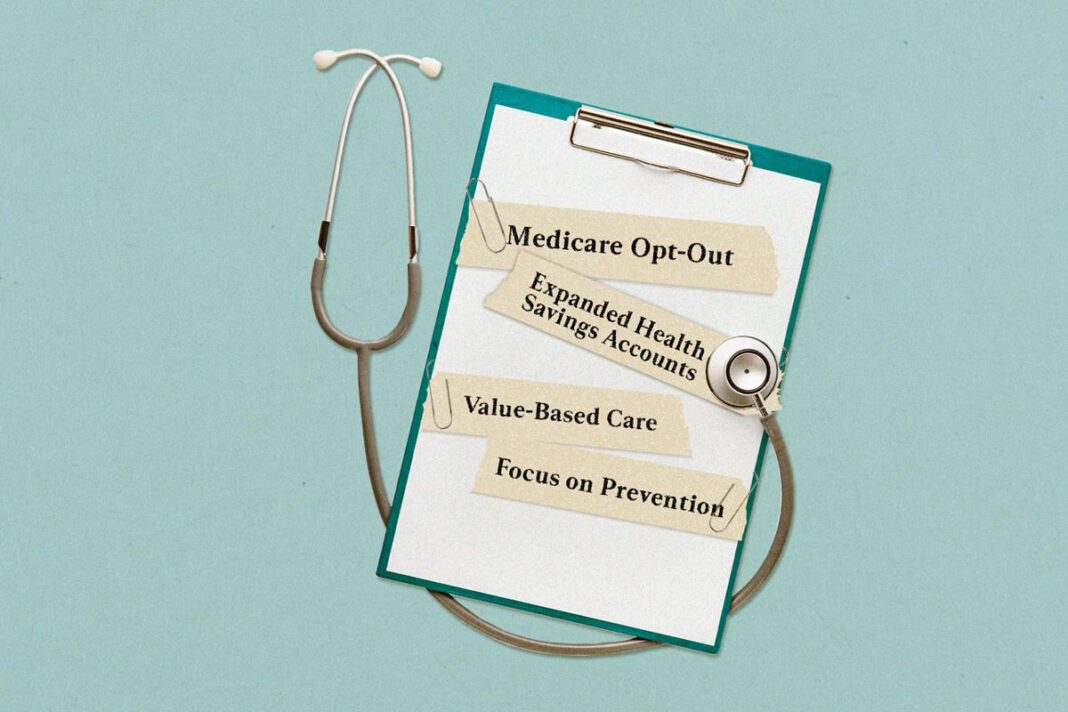With health costs rising and outcomes worsening, some analysts and lawmakers are proposing big changes.
The U.S. health care system has grown in cost and complexity over the decades, leading some observers to say that it is time for a radical shake-up.
The current system is an amalgam of public and private insurers, for-profit and nonprofit care providers, drug manufacturers, benefit managers, retailers, and sprawling health conglomerates.
Americans collectively spent $4.9 trillion on health care in 2023. No other country spends as much, yet Americans are less healthy than those in comparable nations and do not live as long.
“The old business model of fee-for-service in a fragmented system is no longer viable,” an article published by the National Institutes of Health states. “Bold leadership is needed.”
Some analysts and lawmakers have echoed that thought, proposing ideas for a fundamental change in the way the nation provides and pays for health care.
Here are four of the boldest suggestions.
1. Medicare Opt-Out: Seniors Spend Their Own Money
2. Health Freedom: Expanded Health Savings Accounts
3. Value-Based Care: A New Payment Model
4. Make America Healthy: Focus on Prevention
1. Medicare Opt-Out: Seniors Spend Their Own Money
This idea aims to reduce the cost of Medicare by giving beneficiaries control over their Medicare spending.
A near-opposite of the single-payer proposal is one that would allow states to opt out of the Medicare program, then return to seniors the money that would have otherwise been spent to provide them with Medicare.
“It might seem weird to have some states covered by some federal programs and others not at all,” wrote Jason Sorens, senior research fellow at the libertarian-leaning think tank American Institute for Economic Research. “But there’s nothing unconstitutional or legally problematic about it.”
According to Sorens, state legislatures are more nimble and financially responsible than Congress and could devise ways to empower Medicare beneficiaries to make health care choices.
In an op-ed for The Epoch Times, attorney Christopher Crennen wrote: “Instead of government price-setting and provider payments, seniors could purchase health insurance and care in open, competitive markets. The result would be lower costs, healthier people, and vastly less fraud.”
Crennen estimated that each Medicare beneficiary would receive $1,350 per month, equating to more than $32,000 per year for a married couple. That amount would be enough to purchase catastrophic health insurance and save money for routine health expenses, he said.
No specific plan has been put forward to enact this idea. However, bipartisan lawmakers have strongly opposed major changes to the Medicare program.
“Yes, we need to make changes to Medicare,” Sen. Elizabeth Warren (D-Mass.) said in a Feb. 2 committee hearing. But she said the real problem is the fraud and profiteering that accompanies the privatization of government programs.
Trump has repeatedly said he will not make major changes to the program, other than to eliminate fraud.








